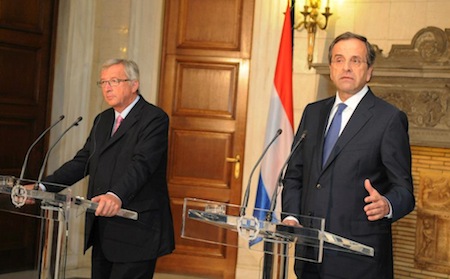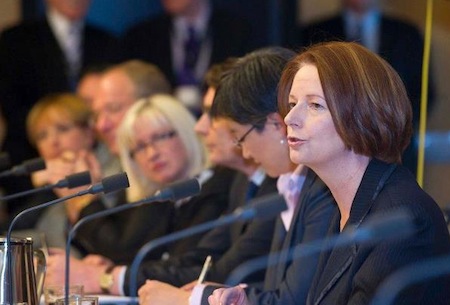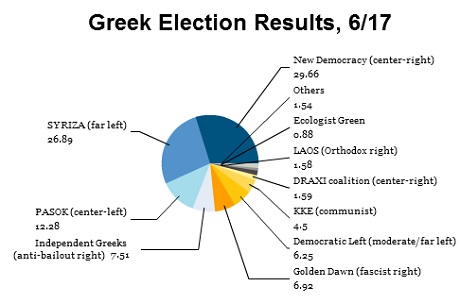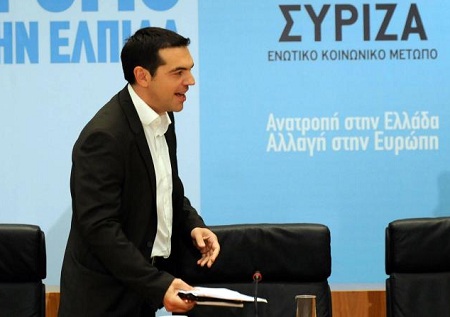With lightning speed (as far as coalition-building goes in the Netherlands), the two top finishers in the Sept. 12 Dutch election have formed a government that will seek €16 billion in budget cuts to bring the Dutch budget further into balance. ![]()
Standing in front of a futuristic poster of a bridge, prime minister Mark Rutte (pictured above, right), the leader of the center-right Volkspartij voor Vrijheid en Democratie (VVD, the People’s Party for Freedom and Democracy) and Diederik Samsom (pictured above, left), leader of the social democratic Partij van de Arbeid (PvdA, Labour Party) announced that they will form the next governing coalition together.
The two parties finished first and second, respectively, in September’s election, far outpacing the other Dutch parties.
Throughout much of the campaign, the more leftist Socialistische Partij (SP, the Socialist Party) led polls, only for Labour to emerge in the last two weeks of the campaign, as Socialist leader Emile Roemer seemed to stumble in various television debates and Samsom emerged as a credible alternative — more pro-Europe and less stridently leftist yet still more skeptical of budget cuts.
Ultimately, the VVD won 41 seats and Labour won 38 seats — an increase for both parties. The Socialists won just 15 seats, a far cry from polls just two weeks prior to the election that showed them winning upwards of 3o or 35 seats. In switching from the Socialists to Labour, a huge chunk of Dutch voters have essentially moved the country from an outright anti-austerity coalition to a more stable, more centrist coalition — in fact, a return to the tradition of ‘purple cabinets’ of the past that included the VVD and Labour, most recently from 1994 to 2002 under various governments led by Labour prime minister Wim Kok.
The reported terms of the coalition agreement make clear that, essentially, the Rutte II government will continue to pursue vigorous austerity measures designed to bring the Dutch budget within 3% of GDP, despite Samsom’s opposition to budget cuts earlier in the spring and his vigorous opposition to Rutte throughout the campaign. So in joining a government with Rutte, Samsom and Labour will leave the Socialists as the major anti-austerity opposition on the Dutch left.
So how exactly will the Rutte II government differ from its predecessor? And what did Labour win in exchange for its support for a fairly pro-austerity agenda?
Continue reading VVD and Labour to form new ‘purple’ coalition for Dutch government













